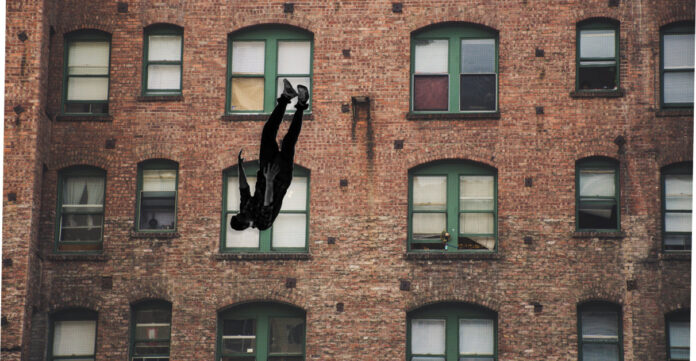Bank runs used to take days because bank customers had to wait in line and withdraw cash from a teller. In fact, that line down the block is how locals would know there was a bank run, and if they had funds in the bank, they’d join the line.
As we saw Thursday and Friday, wire transfers and other instantaneous methods of transferring funds from bank A to Bank B make bank runs these days almost instantaneous. That’s how rumor caused the Silicon Valley Bank to go from being “well capitalized” to being in receivership in less than 48 hours.
Figure the smart money gets out first, then the word spreads and others make withdraws while the stock craters. That share price drop makes news and reporters dig into it and report the story. Anyone who’s behind the curve sees the news and tries to shift their funds before the FDIC comes in and locks the place down. Our instant access to financial news online and access to financial rumor and speculation on social media contribute to the speed of the run. This reinforces the need to have accounts at multiple banks so you can move your money if necessary.
The closure of Silicon Valley Bank has spawned news stories about companies that had to delay their payroll or might not make payroll because all their money was in the bank, start-ups that can no longer access their start-up funding, and established companies with hundreds of millions of dollars that are tied up until the FDIC unwinds this mess and determines how many cents on the dollar they are going to pay depositors.
But beyond the damage this closure will do to SVB’s depositors and employees, let’s look at what it means for the greater economic picture.
The Fall
Have you ever seen one of those action adventure movies where the hero climbs out the window of a building and is running along the roof? Then they slip and are sliding to the edge of the roof where they miraculously cling to the gutter, legs flailing. I think that describes where we are today. We are on clinging to the edge, five stories above the ground, with nothing but a hard landing ahead of us.
In the movie, when Jackie Chan, or whomever our movie hero is, falls off the gutter, he will hit a flagpole, grab its rope, use it to swing back and forth and propel himself onto the awning two stories below. The awning will break his fall and then gradually rip, letting him slide through and land on his feet. Our movie star will brush himself off and walk away like nothing happened.
What are the odds of our banking system making a similar soft landing? Normally, I’d say the odds of a soft landing are low. But just as movies have directors, so does our financial system. Instead of sitting in those director chairs with their name stenciled on the back, they are in leather office chairs behind impressive desks. They don’t yell “Cut,” but they still exert an extraordinary amount of control over the banking industry. They can prop it up, or let it fall. Maybe they’ll do both, letting it fall for a while and then swooping in to save it at the last minute.
The Call
Whether they act, and if so, when they act, will depend on a variety of circumstances. You and I will never know exactly what drives their decision making, but rest assured, it will involve money, power, and politics. It will happen at a high level. A group of old men who went to the right schools and inherited the right kind of money will meet behind closed doors and make a decision. We won’t know what their call will be, but we’ll have to live with the consequences.
Will someone say do and reassuring things or will they be silent and let the market flounder? Will another bank be convinced to buy SVB, stabilizing things for its depositors? What happens could determine if the economy falls off the roof and crashes, hits the awning and lives, or lands in the dumpster, which cushions its fall but leave it limping.
We have to be prepared for any of these outcomes. That’s why we prep, to be ready for anything. But my bet is they find another buyer by twisting some arms and making concessions behind the scenes. If they do, the problem goes away.
Most of America is oblivious to what is happening. No one outside of a limited circle is talking about this. Beyond the preppers, the investment community, and bankers, I don’t think anyone cares. As long as their Internet service isn’t interrupted, you can use Americans as a punching bag and most of them will roll with the punches, shrugging them off. Until it affects their ability to click a button and buy something, what happens at SVB doesn’t bother them.
What Now?
Is the dissolution of a bank going to destroy our country economically? I’d have to say no. We’ve been through this before, and we’ve recovered. Sometimes the cure was almost as bad as the disease, but we eventually reached a new normal.
Is it a step downhill? Yes, I’d say it’s a leap downhill and a sign of worse to come. How long do we have before we collapse? No one knows.
Except maybe those old men in their comfy leather chairs.
Let me repeat myself: you need to be ready for anything. Economic collapse. War. A nuclear attack. Terrible weather with unexpected side effects. An EMP strike. A banking collapse. Stock market implosion. Hyperinflation. We’re at the point where none of the above would surprise me.
Just take it one day at a time, my friends. Be ready for anything and don’t travel too far from home.


